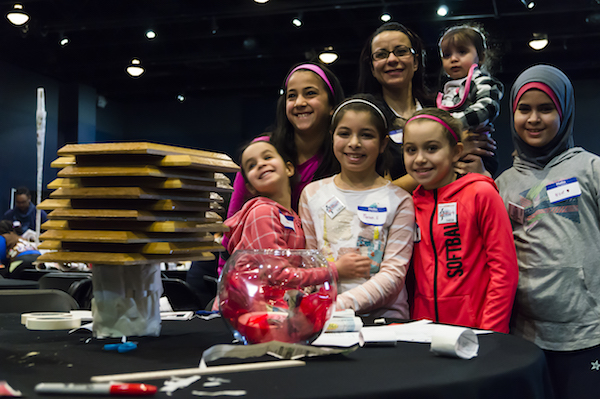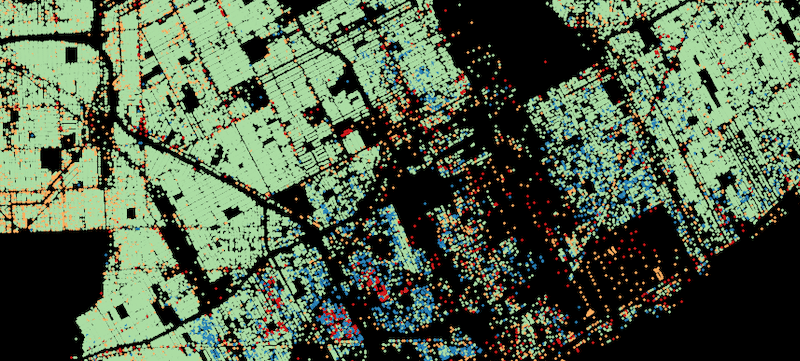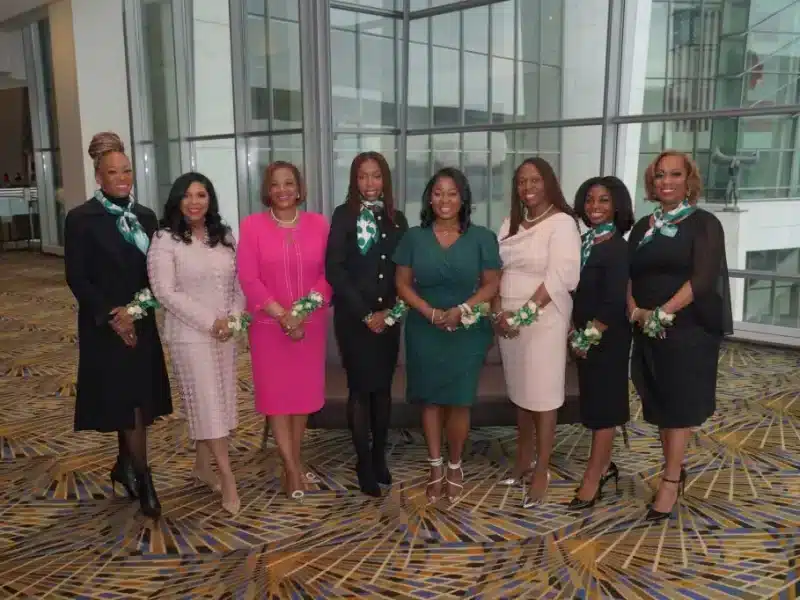Partner Partner Content The STEMinista Project introduces girls to the wonders (and comradery) of science
Started as a way to close the STEM gender gap, the project is designed for girls from fourth to eighth grade and offers special opportunities that encourage them to learn about STEM and get involved in STEM-related activities.

Fourth-grader McKenzie Randolph’s interest in science, technology, engineering and math (STEM) was sparked earlier this year when her mother, Felicia, took her to see Hidden Figures, a film based on the true story of female African-American mathematicians who worked at NASA during the 1960s.
“That was an eye-opening moment for my daughter,” says the elder Randolph, a Metro Detroit pediatrician. “I remember, when she watched that movie, how amazed she was at the possibility of being involved in something that great, to put someone on the moon. She was just blown away.”
While Hidden Figures served as an inspiration for the two Randolphs, it was only the first step for what would follow; this past fall, they decided to act on their shared interest in STEM by getting involved with a Michigan Science Center initiative called the STEMinista Project—Felicia as a volunteer and her daughter, McKenzie, as a participant.
The STEMinista Project is designed for girls from fourth to eighth grade and offers special opportunities that encourage them to learn about STEM and get involved in STEM-related activities.
Much of the activity happens on STEMinista Saturdays, which takes place the second Saturday of each month. Participants attend special Michigan Science Center events, meet with role models with interesting STEM jobs, participate in workshops, and more. The program was launched in 2016 under the leadership of MiSci’s president and CEO Dr. Tonya Matthews. Since that time more than 1,000 girls and 250 role models from a diverse range of backgrounds have participated in the program.
While Randolph is still new to the program, its mission is one that’s very close to her heart.
“There is this notion that sometimes girls are not expected to excel, particularly in math and science, so I think that we have to break down those barriers,” she says. “Girls need to see other role models that are already doing it or involved so they know that it’s something that’s an attainable goal for themselves.”
There’s still a lot of work to do in this area. According to a 2016 National Science Foundation report, women make up half of the total U.S. college-educated workforce, but only 29 percent of the science and engineering workforce, with the most dramatic disparities occurring in engineering, computer science, and the physical sciences. And with STEM degree holders earning an average of 12 percent more than non-STEM degree holders, it’s clear a lot of young women are missing out on good career opportunities.
Monica Wheat, an area professional with years of experience in the engineering and entrepreneurial tech industries, knows all about the digital side of The STEMinista Project. She’s the executive director and co-founder of Digerati Girls, a nonprofit organization that organizes classes and workshops to introduce young girls to digital and tech innovation careers.
Digerati partners with the Michigan Science Center on STEMinista programming, which includes coding classes, college prep help and summer camp. Wheat says one of their most popular events is the Overnight Hackathon, which takes place several times a year.
“Last time, we had 70 girls come out for the night,” she says. “They created mobile apps, they participated in classes at the Science Center, and the next morning they showcased what they learned and competed for prizes.”
As for its impact, Wheat, a member of The STEMinista Project’s Advisory Board, says the results of the program surveys have been very promising. “Before coming, when asked to rate their confidence level in tackling STEM subjects, girls average two or three [out of five], and afterwards we’re getting threes and above,” says Wheat. “More than 80 percent are saying they would at least try a STEM path on their own.”
Birmingham-based inventor, entrepreneur, and medical doctor Julie Bartholomew has also been with The STEMinista Project since its early days. The founder of the IMX Cosmetics brand, she currently has 112 patents in 18 countries related to customizing cosmetic and toiletry products.
Bartholomew was one of The STEMinista Project’s first speakers and frequently talks to girls in the program about the machine she invented to dispense customized cosmetics.
“I’m able to share with young girls what I did, how I took apart a machine, how I analyzed it, how I built five different kind of machines that make cosmetics—lip gloss, nail polish, soaps, lotion, foundation, fragrances, candles, anything whether liquids or powders—and watch them get inspired by an unusual way to bring their visions to life.”
As a role model in the program, Bartholomew is excited to see all the curiosity and enthusiasm girls in The STEMinista Project bring with them. But beyond that, she also sees a glimpse of what the future might hold.
“It seems to me that girls through the years have been left behind, but I know it’s changing,” she says. “Programs like this are able to show the diversity of women. I think that’s very important, because that’s
where the world is moving to.”
Learn more about The STEMinista Project, or to sign up as participant, role model, or donor here.
This article is part of a series on the state of STEM education and workforce development in Detroit. It is underwritten by the Michigan Science Center. Read more articles in the series here.





